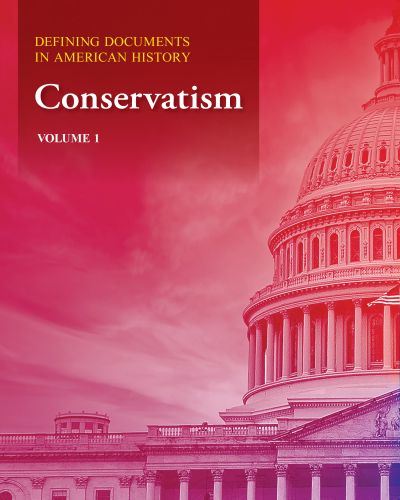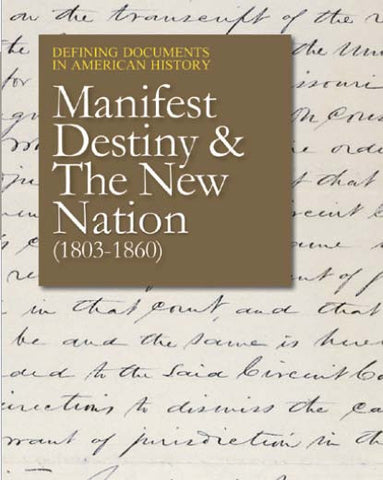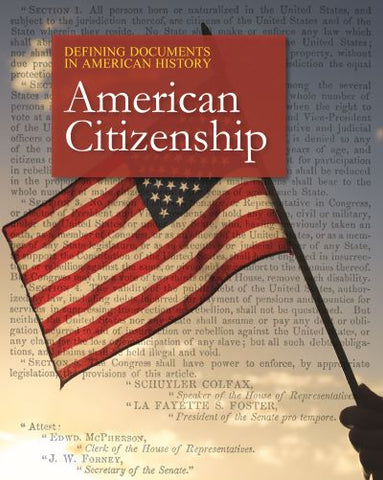Defining Documents in American History: Conservatism
$ 295.00
Conservatism has played a major role in U.S. politics since at least the Reagan era, and going back to the Nixon administration and before. Conservatism is a political and social ideology that emphasizes the importance of tradition, established institutions, and gradual change. Central aspects of conservatism include the value of national customs and institutions, a cautious approach toward immigration, the importance of authority and order, and a sense of loyalty to the nation and its founding principles. In recent decades conservatives, generally aligned with the Republican Party, have promoted limited government, military might, financial deregulation, and private enterprise as the way forward for the United States. Successful election results in recent years have seen the rise Christian nationalist politics and the emergence of Donald J. Trump as the new herald of a hardline conservativism, one, even, that challenges existing institutions. Yet conservative politics have continuously been challenged by liberal voices in the American polity, including mass movements against authoritarian conservative tendencies and wars of choice rather than necessity. Anti-egalitarian precepts held by Republican conservatives and harsh restrictions against immigrants have, likewise, been lamented by liberal, mostly Democratic opponents. Covering key moments and ideas from previous eras to today, this work explores this all-important thread in American political culture and how it has impacted the workings of government, the economy, national defense, international relations, law and society, domestic programs, and cultural values throughout U.S. history. The documents contained within these sections provide an overview of the history and significance of liberalism in American society, exploring important moments in the ideology’s development from the founding of the country to current times.




Share this item: